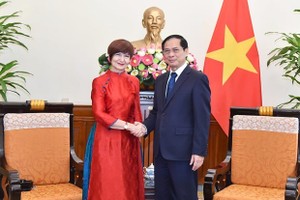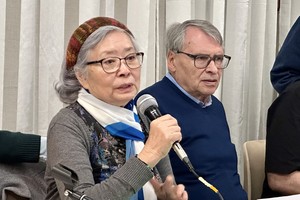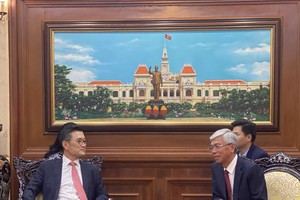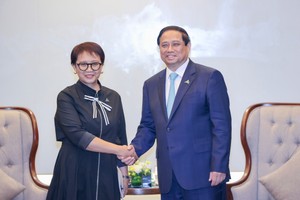More than 100 Indian girls named "Unwanted" by their parents are to get new names this weekend as part of a campaign to tackle bias against women that has led to the country's huge gender imbalance.
About 150 of more than 200 girls called "Nakusa", which means "unwanted" in the local Marathi language of western Maharashtra state, will get rid of their first name for good on Saturday under an initiative in the district of Satara.
"We've identified 222 Nakusas," said district health officer Bhagwan Pawar, who has been behind a drive in the area to combat negative attitudes towards girls.
"The most probable reason for them being called 'Nakusa' is that they were the second, third or fourth child in that family and the parents wanted a boy," he told AFP.
Girls, particularly in poorer, rural areas of India, have traditionally been seen as a financial burden on their families because of the dowry that has to be paid when they marry.
In contrast, boys are viewed as heirs, future wage-earners and family heads.
"Many of these girls that we've identified don't want their name. They feel very bad about it, so there is a psychological impact," said Pawar.
"We will change their names and we will award them with certificates with the signature of the district collector (local government official) and myself. All their school documents and official records will be changed."
A preference for boys has led to a rise in the abortion of female foetuses in India as well as the neglect and even murder of baby girls, meaning millions of women are effectively "missing" from the population.
India has made the use of ultrasound scans to inform parents-to-be of the sex of their unborn child illegal, but a lack of enforcement means the practice continues.
One study published in The Lancet medical journal suggested that as many as half a million female foetuses are estimated to be aborted each year in India.
In April this year, 15 female foetuses were found on a rubbish dump in the eastern city of Patna.
In Satara, 190 kilometres (120 miles) from the state capital Mumbai, the sex ratio is 881 girls for every 1,000 boys -- well below the rural average of 919.
The national average of 914 is the worst since India became independent in 1947 and lags the global benchmark of 952.
Nature provides a biological standard for the sex ratio at birth of 943-962 females for 1,000 males. Any significant divergence from that narrow range can only be explained by abnormal factors, say population experts.
Sudha Kankaria, an activist who runs the local Save Girl Child charity and who has been involved in the renaming project, said the "Nakusas" of Satara were living examples of prejudice.
Because of their first name, many girls had poor self-esteem, were embarrassed and discriminated against, with the risk that they will pass on their insecurities to their own daughters, she added.
"It's a vicious circle and we should break it. With this project, we are benefiting two people: the Nakusas and the future Nakusas," she said.
Some girls have already changed their names in recent weeks, said Kankaria, adding that she has been working to introduce a pledge into the Hindu marriage ceremony for local couples to welcome and honour baby girls.
The first Nakusas to change their names were two young cousins, now called Aishwarya and Sunita.
"I didn't choose this name but it is nice," eight-year-old Aishwarya told the Times of India newspaper last month. "(My friends) still call me Nakusa because they have become used to it.
"But whenever anybody calls me Nakusa, I correct them," she added.
























